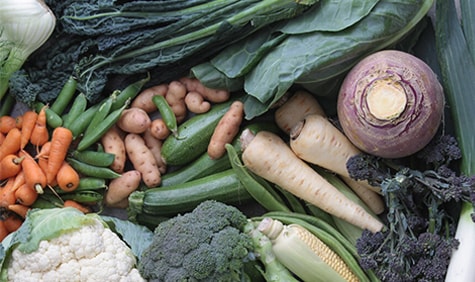An eight-week on-demand program to boost your immunity


Research shows the majority of us are unknowingly and consequentially hurting our immune system.
A weak and inflammatory immune response, instead of protecting us, can harm our body.
A weak immune system also interferes with getting adequate protection from vaccination.
Research also shows that simple and easy-to-implement changes can help improve your immunity and protective vaccination response.
The structured on-demand Immune Resilience course provides actionable and easy-to-implement ideas based on published research.
This course is created by Dr. Amit Sood, an internationally recognized expert in resilience, wellbeing, and integrative medicine.
Immune resilience is having an immune system that attacks and eliminates the microbe without hurting your own body cells or causing excessive inflammation.
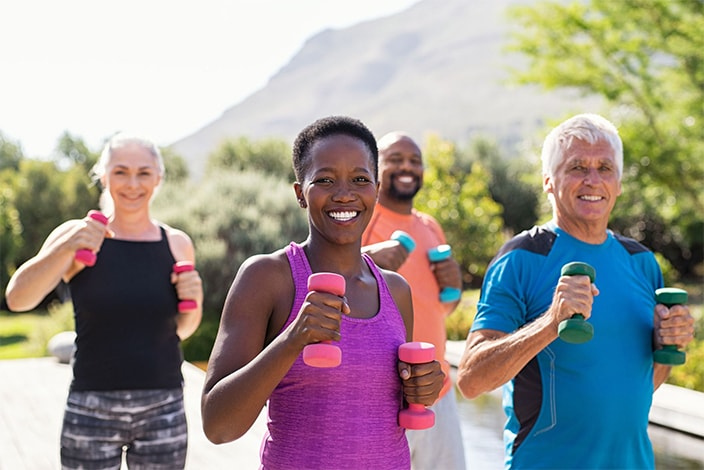
Each week has five videos on the following topics:
Micronutrients
Stress Resilience
Relationships
Movement
Happiness
Sleep
A Purer Body
Potpourri

Tens of thousands of participants nationally and internationally have participated in the Immune Resilience workshops presented by Dr. Sood. These include -

Immune resilience is crucial today for two reasons:

© 2020 Resilient Option. All rights reserved. Website designed by SocioSquares.
Carla Paonessa lives in Scottsdale, Arizona, with her husband of 46 years, Russ Paonessa.They have 3 children, 5 grandchildren, and 4 great grandchildren.
Carla chairs the Mayo Clinic Leadership Council in Chicago while also being active on theLeadership Council of Mayo Clinic in Arizona. She is Chair Emeritus of the Board of Trustees forLeaderShape, a 35+ year old organization that has trained more than 100,000 young peoplehow to lead with integrity and a sense of possibility.
Prior to retirement, Carla was a Managing Partner of Change Management for Accenture, the$139b global consulting company. During her 25-year career there she held several positions,including global responsibilities for client service in multiple industries and working with the CEO and the Executive Team during their successful IPO in 2001. Prior to Accenture, Carla had 12years in government service with IRS, running an 8 state Regional Training Center and FAA,retraining air traffic controllers who had to leave their jobs for health reasons.
She holds a BA in English from the University of Oklahoma and a MA in English from theUniversity of Kansas.
Carla describes her life’s work as “...reminding other people how good they are. Sometimesthey forget.”
Carla brings her enormous corporate experience to support the growth and dissemination of theprograms.
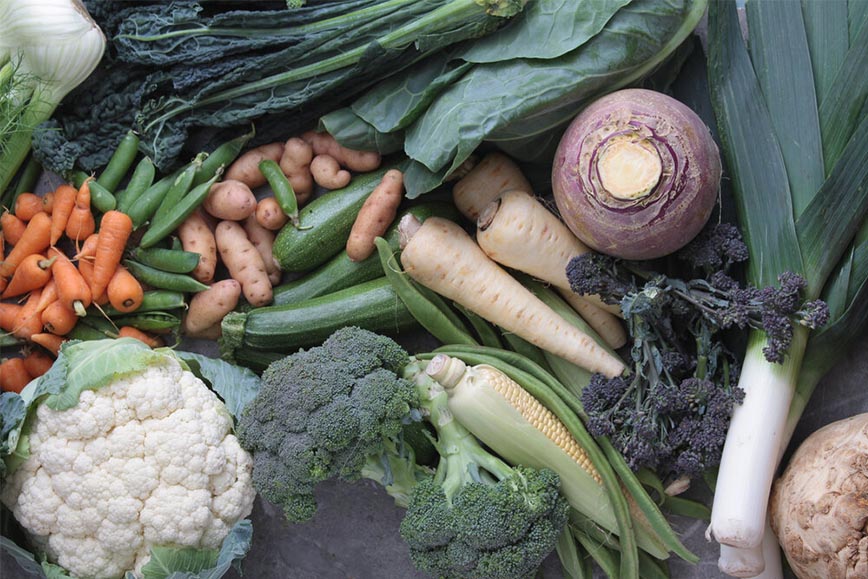
What are micronutrients?
Micronutrients are dietary components that are essential for development, disease prevention, and wellbeing. We must take the micronutrients from outside since our bodies cannot manufacture them. They include vitamins and minerals (vitamins A, B2, B6, and B12, folic acid, C, D, E, iron, selenium, copper, and zinc).
Is micronutrient deficiency common?
Yes! Unfortunately, we often lack these essential chemicals. Globally, per the CDC, almost two billion people have a micronutrient deficiency. https://www.cdc.gov/nutrition/micronutrient-malnutrition/micronutrients/index.html
How does micronutrient deficiency affect people?
Micronutrient deficiency weakens the immune system resulting in recurrent and chronic infections. Even marginal micronutrient deficiency can impair the immune system, an important recent realization.
At the other extreme of micronutrient deficiency is macronutrient excess, particularly of refined sugars and low-quality fat. Excessive caloric intake and the associated weight gain predisposes to inflammation, poor coordination between the innate and adaptive immune responses, and disruption of the lymphoid tissue, predisposing you to infections.
Further, the immune changes also hamper your response to vaccination. You want to give your immune system the best chance to respond to the vaccines given to you. Otherwise you have invited the side effects of the vaccine, without the benefit.
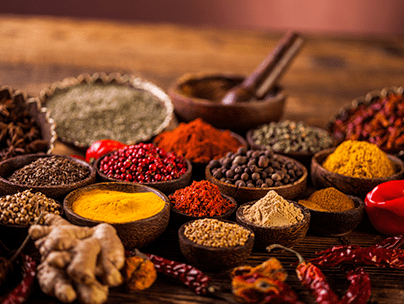
Eat smart
Eat different types of food. Whenever possible, eat fresh. Research shows that a higher intake of fruits and vegetables improves immunity and lowers inflammation and oxidative stress. Also, consider adding spices to your food.
Spices like turmeric, coriander, ginger, cinnamon, cayenne, and black pepper provide excellent antioxidant effects, which may curb inflammation.
Eat fewer calories
You may not have to decrease the total amount of food you eat; just enhance its quality.
Prioritize low calorie-dense options.

You can also consider intermittent fasting, which is showing interesting beneficial effects on the immune system in some of the early studies.
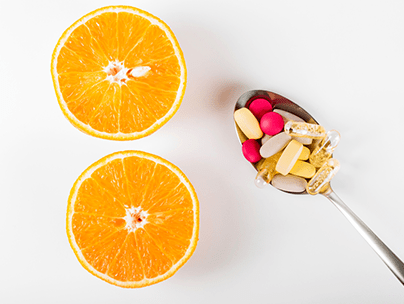
Consider supplements
Micronutrient deficiency worsens chronic health conditions. If you have a chronic illness, be extra careful about your micronutrient intake. In some situations, a supplement might make sense.
Avoid supplements that provide excessive amounts of vitamins and minerals. Instead, choose the ones that provide close to 100 percent of recommended daily intake. Check with your physician if this is OK for you, particularly to make sure that the supplements you take do not interact with any of your other medications or medical condition.
For review of research and more details refer to Chapter 3 (Correct Two Deficits) in Build Your Immune Resilience.

How does excessive stress affect immunity?
Excessive stress hurts us in two ways. It decreases your immune system’s ability to fight the infection (for example, by reducing NK cell activity) and causes an exaggerated inflammatory response that can hurt as much as the infection itself. Stress weakens your immune response by impairing dendritic cell function, decreasing NK cell activity, and lowering antibody production.
How does compromised immunity due to excessive stress affect different populations?
No demographic and no infections are protected from the effect of stress. The elderly who are stressed have a lower response to the flu vaccine. Workers with high effort-reward imbalance and overcommitment have a weaker immune system. Stressed people experience a higher risk of bacterial as well as viral infections such as herpes flare-up. Similar to stress, both depression and anxiety hurt both innate and adaptive immunity and predispose to inflammation. Further, inflammation by itself may predispose to stress and depression, trapping us in a feedback loop.
Can we reverse the effects of stress on immunity?
Yes, decreasing stress can reverse several of the stress-associated immune changes. Also, maintaining a positive outlook through a stressful situation can limit the adverse inflammatory effect of the stressor.

Discard optional stressors
Pick at least one thing that is causing excessive stress. A few examples are - Too much time with the news; letting others who don’t care much about you, influence your self-worth; setting unrealistic expectations of yourself; feeling the pressure to please everyone. To the extent you can, change one of the stressors mentioned above.
Many of these suggestions converge to one simple idea: be kind to yourself (self-compassion). Greater your self-compassion, better your sleep, immunity, and overall physical health. Interesting research shows that for people exposed to a stressor, a better sense of self is associated with lower inflammatory response.
Boost your resilience
Resilience is the core strength you use to lift the load of life. Resilience is your ability to withstand adversity, bounce back from adversity, and grow despite life’s downturns. Our team has developed some very specific resilience practices such as the morning gratitude, the two-minute rule, curious moments, kind attention, and resilient mindset.
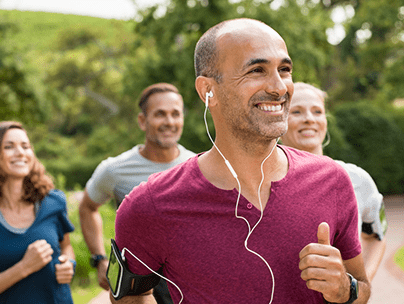
Develop greater resilience by inviting five timeless principles into your life: gratitude, compassion, acceptance, meaning, and forgiveness. Consider visiting resilientoption.com for more information.

Practice meditation
Most meditation styles help the immune system. Meditation is one skill that is easy to learn but difficult to master. Keep measured expectations and start with a very simple practice.
Just as you can’t swim like a dolphin in a few weeks, you won’t experience uninterrupted calm with a few weeks of meditation.In addition to meditation, you can use other mind-body approaches, such as guided imagery or hypnosis. Pick a practice that is easy, accessible, aligns with your worldview, and connects you with others.For review of research and more details refer to Chapter 5 (Calm Your Mind) in Build Your Immune Resilience.

How does a lack of positive social connections affect us?
Relationships touch us deeper than the skin. Perceived loneliness doesn’t just make us sad. Loneliness up-regulates the genes that predispose to inflammation and down-regulates the genes that produce a good immune response. Lonely people thus have a higher level of inflammatory markers and show a greater inflammatory response to a social challenge. Adversarial connections have similar effects as loneliness. People with adversarial connections experience higher inflammation which may by itself negatively affect mood. Further, the greater the inflammation, the higher the social sensitivity, putting people in a downward spiral leading to increasing loneliness.
What happens when we experience positive social connections?
Social support, on the other hand, is associated with lower inflammation, better immune response, and is thus intimately related to your health. Social support also enhances the immune response to vaccination. Further, social support is associated with stronger innate antiviral immunity, which is very important when we face threats for which we do not have good vaccines or drugs.
How do positive social interactions affect our immunity?
In the context of social connections, two areas of particular interest are anger control and kindness. Interesting research shows that poor anger control slows healing. Even memory of anger triggering events can increase the production of inflammatory chemicals (TNF alpha and IL-6 production). Importantly, hostile marital interactions increase inflammatory response, markedly slow healing, and are associated with higher sympathetic activity. Better relationship among couples, on the other hand, leads to better health outcomes.
Kindness is associated with lower inflammatory gene expression. Self-kindness has wide-ranging positive effects on physical health. Similarly, forgiveness, which often emerges from practicing kindness, improves T helper cells, an important part of a healthy immune system.

Do something nice
Make a list of the people closest to you. For the next week every single day, plan to do one nice thing for at least one person in this list. It could be an expression of gratitude, buying a surprise small gift, making an uplifting phone call, giving undivided attention, or something else. Such an action will help both of you generate a healthier immune response.
Be nice to neighbors
Your neighbors have an outsized effect on your wellbeing, almost as strong as your loved ones. Invest some time thinking about how you can enhance your connection with them. Engage in conversation, express gratitude, shower authentic praise, and look out for each other’s wellbeing.
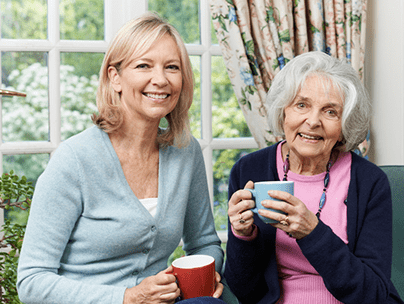

Forgive
Global concerns and crises are times to remember what is most important. This isn’t a time to fear; it is a time to forgive. Remember that forgiveness is for you, not for the other person.
By forgiving, you free your brain’s real estate from the other person. You are improving your health, connections, and choosing to live by your values.For review of research and more details refer to Chapter 6 (Feel Connected) of Build Your Immune Resilience.

Is moderate physical activity beneficial for immune resilience?
Yes! A large number of studies have evaluated the effect of exercise on your immune system. After a good review of the literature, our bottom-line conclusion is this: Moderate physical activity (compared to sedentary lifestyle) improves immunity and protects from infections. Moderate exercise can enhance the immune response to vaccination (to flu and pneumonia vaccinations), reduce inflammation, and improve immune surveillance.
How does moderate physical activity affect the immune system?
Exercise decreases inflammation by decreasing stress hormones and inflammatory cytokine levels in the blood. Exercise also reduces the percentage of body fat and macrophages in the fatty tissue, activates the cholinergic anti-inflammatory pathway, among other mechanisms.
Should senior citizens also exercise?
Yes! An important subset where exercise is particularly important is among the seniors. Regular exercise lowers inflammatory cytokines, enhances adaptive immunity, improves NK cell activity, and lowers the number of senescent T cells. While exercise may not completely reverse the effect of old age on the immune system, research is fairly compelling, pointing to its considerable benefit.

If needed, start small
You do not have to get into a vigorous regimen to get immune benefits from the exercise. Instead, start with something small and build from there. An important benefit of doing something is that it will increase your perception of wellbeing, which by itself can enhance your health.
Keep in mind that if you have been sedentary for a long time, it will help to talk to your healthcare provider to make sure you do not need any baseline testing before starting the exercise program.
Remain agile
Equally important to focused aerobic activity is to remain agile during the day. Some researchers call it NEAT (Non-exercise activity thermogenesis). Interesting research shows that NEAT can be an important source of weight management.

Further, convincing research shows that prolonged sitting (several hours at a time during the day) can increase your risk of diabetes, heart disease, stroke, cancer, and early death. Breaking your sitting time with intermittent walking can minimize these risks.

Build some muscles
Invest a few minutes during the day to increase your muscle mass. It can simply be doing a few pushups, walking up and down the stairs, lifting some weights, or more.
It might help to talk to a fitness expert to help customize the program to your strengths and needs. Both Yoga and Tai Chi also involve considerable physical activity and help your immune system. A review of 16 studies showed that Tai Chi improves cell-mediated immunity and the antibody response following vaccination.For review of research and more details refer to Chapter 4 (Build Physical Vitality) of Build Your Immune Resilience.

How does happiness affect health and immunity?
Happiness enhances health and longevity by improving genetic expression, enhancing immunity and autonomic balance, decreasing inflammatory markers, improving lifestyle, and enhancing social connections. Further, your happiness is infectious. When you feel happy (and show it), people close to you not only become more joyous, they also become physically healthier.
How can I be happier?
Laugh more! Laughter, a physical expression of happiness, is a broad-spectrum health-enhancing activity. Laughing upregulates your NK cell immune response genes, and decreases pro-inflammatory cytokines, particularly in people with inflammatory state. Watching a funny video can increase NK cell activity for as long as 12 hours.
If you wish to pamper yourself, also consider massage! Aromatherapy massage lowers stress and inflammatory immune markers. A review of five studies suggested that massage improved immunological recovery after intense exercise. Massage improved NK cell activity and decreased CD4 cell decline in patients with HIV.
Is there anything else I can do to be happy?
Harbor more hope. An important ingredient of happiness is hope. Hope protects you from the inflammatory and immune-suppressing effects of stress. Optimism is also associated with higher NK cell activity, improving your anti-viral response. Music is another simple yet powerful source of happiness. Research shows that the predictable harmful effect of stress on immune and inflammatory markers can be reversed by music. These benefits have also been seen in seniors.

Pick one idea
Here are a few - Become physically active; eat healthy; cultivate real-life friends; pamper yourself (at least occasionally); feel grateful; lower expectations; create a “Not to do” list; live each day with purpose; help others; do interesting projects; be kind to others; be kind to yourself; nurture hope.
Get a massage
If you feel up to it, consider getting a massage to help enhance your wellbeing. You can get massage by a professional or during times when you are suggested to minimize exposure, perform self-massage.


Add music to your life
Music has a powerful influence on our wellbeing. You can keep a committed time listening to music, add music as a background to anything else you are doing, and also participate in group activities that bring music to your life such as choir, drumming, and more.
As you implement happiness-promoting activities, keep in mind that happiness doesn’t mean suppressing all negative emotions. The happiest people are those who allow themselves to experience authentic emotions instead of bottling up negative emotions. Further, research showed that people who allowed themselves to cry experienced an improvement in inflammatory markers. Thus, be emotionally authentic, instead of forcing positivity. In whatever you do, be kind to yourself.For review of research and more details refer to Chapter 7 (Be a Little Happier) of Build Your Immune Resilience.

Is sleep deprivation common?
Between 30 to 40 percent of us do not get sufficient sleep (7 or more hours in the night), and a considerable proportion experience non-restorative sleep. This is important because sleep isn’t a passive state of relaxation. Instead, sleep is an active state of healing.
How does sleep help?
The sleeping brain is busy clearing accumulated neurotransmitters, heavy molecules, and other chemicals from the brain. Sleep regulates your endocrine glands and gives your body and mind an opportunity to rest and recover. The sleep-wake cycle is intimately related to other circadian rhythms such as blood pressure, body temperature, and cortisol. Disruption of this cycle increases your risk of heart disease, diabetes, cancer, and can predispose to an early death.
What happens when I don’t get enough sleep?
Insufficient sleep increases susceptibility to viral infections, decreases antibody response to vaccination, and predisposes to inflammation, partly by influencing cytokine secretion. Lack of sleep increases circulating neutrophils and impairs NK cell activity (NK cells are extremely important in your fight against the viruses).

Remove barriers
Create a peaceful environment in your bedroom. Keep the lighting dim, avoid flashy screens (TV, Smartphones, Tablets) as much as possible, lower the noise, and surround yourself with images and messages that calm your mind.
Avoid taking stimulants late in the day. Try not to eat heavy meals or engage in vigorous exercise a few hours prior to sleeping. Also, minimize (to the extent you can) visiting worries or emotionally taxing thoughts late during the day.
Commit to a discipline
Commit to a predictable sleeping and waking up time, while being more thoughtful about the daytime naps since they can sometimes interfere with the night-time sleep. Maintaining a sleep diary can help with following a disciplined sleeping regimen.


Get professional help
If your partner has noticed you snore at night, if you wake up tired or with a headache, if you get drowsy during the day or behind the wheel, then it will be good to consult your healthcare professional and perhaps your sleep specialist.
With poor sleep or with sleep apnea, you may be limiting the oxygen supply to your brain for a large part of the night. The immune system of a person who doesn’t sleep well starts behaving like that of someone ten years older than him or her.For review of research and more details refer to Chapter 3 (Correct Two Deficits) in Build Your Immune Resilience.

What are the common toxic (harmful) chemicals?
The three most common sources of harmful chemicals are cigarette smoking, excessive alcohol, and abuse of drugs. Cigarette smoking has a severe and widespread damaging effect on both innate and adaptive immunity.
How do harmful chemicals affect my immunity?
Smoking affects T helper cells, regulatory T cells, CD8+ T cells, B cells, macrophages, and NK cells. Similarly, excessive alcohol intake predisposes to inflammatory immune changes. Combined smoking and excessive alcohol use have a remarkably harmful effect on the immune system, along with increasing the inflammation.
Are smoking, drinking, and drug abuse the only sources of harmful chemicals?
No. It is possible to ingest harmful chemicals through food (such as excessive preservatives, colors, pesticides, heavy metals, bacteria, and more), water (heavy metals such as lead, bacteria, and more), air (pollution, radon, fuel exhausts, and more), and our skin (cosmetic products in particular). Radiations in the environment and some of the prescription medications can also hurt our immune system.
Should I be worried about everything I eat, drink, or inhale?
While you do not need to be paranoid about every little chemical, taking a few prudent steps to minimize the load of immune altering chemicals will help your overall health, particularly your immune system.
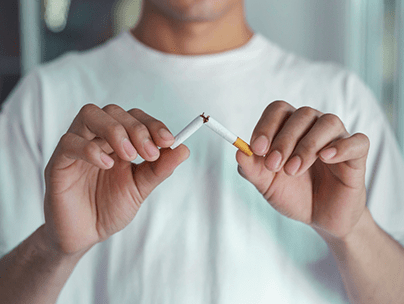
Stop smoking
If you smoke cigarettes or consume tobacco in another form, take the necessary steps to quit this habit. It is extremely important for your overall health and the health of your immune system.
Everything else being equal, your chances of more severe infection are much higher with smoking. Access the CDC tobacco quitline, call 1-800-QUIT-NOW, or contact your health care provider for the next step.
Decrease alcohol intake
Mild to moderate alcohol intake may help the immunity, while heavy alcohol intake (binge drinking five or more days in the past month) harms every aspect of your life. If you are a heavy drinker, consider accessing SAMHSA’s helpline at 1-800-662-HELP (4357) or contact your healthcare team.

SAMSHA stands for Substance Abuse and Mental Health Services Administration. You can access the same resources for quitting other substances.
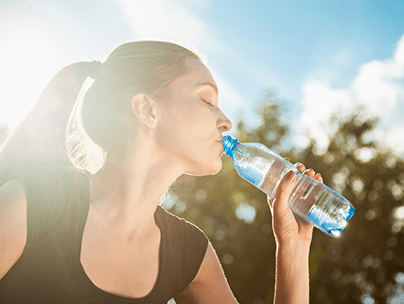
Reduce chemical intake
Take stock of the food you eat, the water you drink, and the air you breathe. Be aware of the chemicals in the cosmetics and your exposure to plastics.
Without becoming obsessive-compulsive and paranoid, take a rational approach toward decreasing the dose of harmful chemicals that enter your body.
For review of research and more details refer to Chapter 8 (Choose the Right Chemicals) of Build Your Immune Resilience.
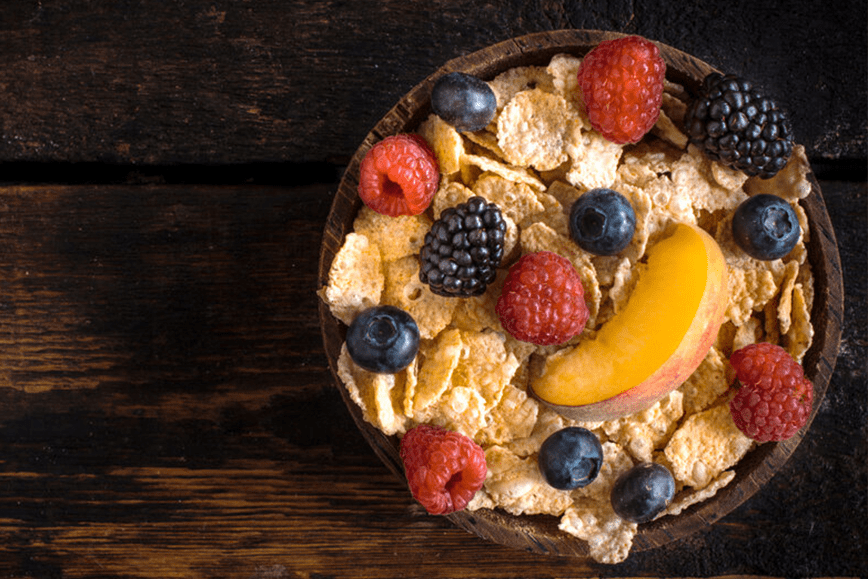
What are examples of helpful compounds?
Here are a few interesting findings from research studies about the effect of supplements or their deficiency on the immune system:
Vitamin A and D: These two vitamins influence lymphocyte activation and division, T-helper-cell differentiation, tissue-specific lymphocyte homing, the production of specific antibody isotypes, and regulation of the immune response.
Blueberries and grapes: Two compounds in these fruits, resveratrol, and pterostilbene enhance immune function.
Bovine colostrum: Bovine colostrum enhances NK cell activity and enhances the immune response to RSV and the influenza virus. In a study, the use of bovine colostrum was associated with a lower number of days with upper respiratory illness.
Broccoli: The phytochemicals in Brassica vegetables of which Broccoli is one, help stimulate the immune system.
Vitamin C: Vitamin C improves NK cell activity, lymphocyte proliferation, and activity of the immune cells. Optimal intake of vitamin C is helpful, but mega doses are of dubious benefit. Further, when you ingest very high doses of vitamin C or another compound, you overwhelm your body’s metabolic pathways. That can harm you in the short and the long term.
Echinacea: Echinacea has both immunomodulatory and anti-inflammatory effects. In a review of six studies, Echinacea was reported to lower the risk of recurrent respiratory tract infections and complications from these infections.
Vitamin E: Vitamin E influences NK cells, macrophages, T cell, and B cell function. Vitamin E supplementation can improve cell-mediated immunity, oxidative stress, and enhance the immune response in the elderly.
Garlic: Garlic can enhance the function of NK cells, lymphocytes and macrophages, and modulate the production of inflammatory molecules and immunoglobulins. Limited research suggests that garlic supplementation might decrease the severity, as well as the incidence of cold and flu.
Ginger: Ginger has excellent anti-inflammatory properties and might be useful as a component of a healthy diet that supports the immune system.
Micronutrients: They are important in the smooth functioning of the immune system.
Probiotics: Many different probiotics are immune modulators and decrease the inflammatory response. Some of the beneficial effects of probiotics may be through modifying the gut flora. Probiotics also enhance NK cell activity.
The above is only a partial list, with many more supplements such as different types of mushrooms, ginseng, green tea, and others known to have anti-inflammatory and immune-enhancing effects.
How should I ensure I have sufficient helpful compounds?
The best source of helpful compounds is the one packed by nature—as fruits and vegetables. But in some situations, specific supplements are helpful. For example, patients with malabsorption need supplementation with vitamins and minerals, elderly with low B12 absorption will be helped by extra B12 intake.
Presently, it isn’t very easy to recommend one particular supplement for its immune benefits. A good approach might be to add blueberries, grapes, broccoli, garlic, ginger, probiotics, and turmeric as part of a healthy diet, and correct any micronutrient deficiency.
For review of research and more details refer to Chapter 8 (Choose the Right Chemicals) of Build Your Immune Resilience.
